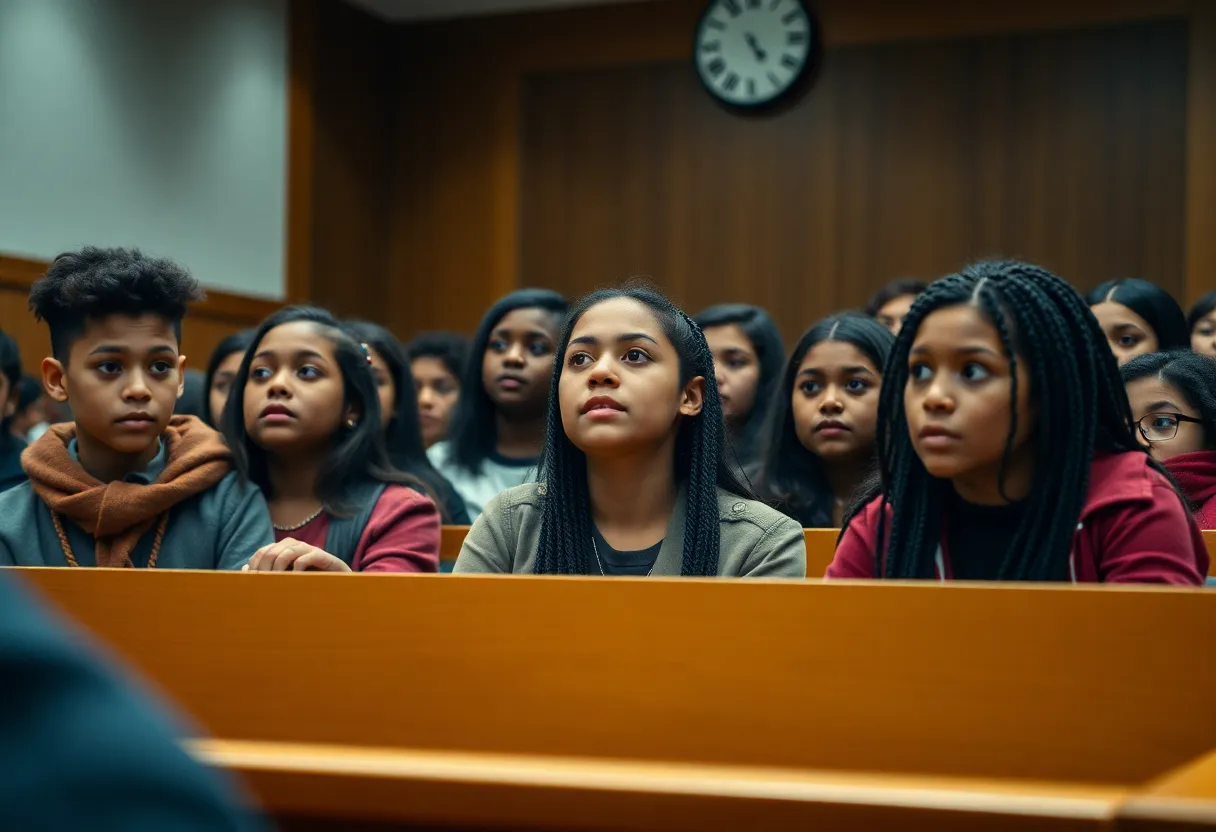News Summary
Matthew Ariwoola, an international doctoral student at the University of South Carolina, faces visa revocation that threatens his graduation and life in the U.S. A judge has temporarily halted his deportation as he battles the decision. This case highlights the plight of many international students facing similar challenges after recent immigration policy changes.
Columbia in Crisis: International Student’s Battle Against Visa Revocation
Columbia, South Carolina, is once again in the spotlight as it becomes the setting for a gripping legal battle. A 32-year-old international student, Matthew Ariwoola, hailing from Nigeria, is taking a bold stance against the federal government after his student visa was abruptly revoked without any explanation. This unexpected twist threatens not only his upcoming graduation but also his ability to continue his life in America.
A Troubling Twist for a Promising Scholar
Ariwoola is a fourth-year doctoral chemistry student at the University of South Carolina (USC) and was on track to graduate in December 2023. However, in April of this year, he was blindsided when USC staff informed him that he could no longer continue with his studies or teaching due to uncertainties surrounding his immigration status. Since that fateful day, Ariwoola has been grappling with the alarming reality that he may face detention or deportation in the coming weeks.
To provide some breathing room, U.S. District Judge Jacquelyn Austin issued a temporary order on October 30, preventing Ariwoola’s deportation for at least two weeks. This ruling allows him the chance to pursue his academic and employment opportunities while his legal team, with support from the ACLU of South Carolina, works tirelessly to challenge the government’s decision.
Far-Reaching Implications for International Students
Ariwoola’s predicament is not an isolated incident. He is among over 1,000 international students across the U.S. facing potentially dire consequences after the U.S. Department of Homeland Security and U.S. Immigration and Customs Enforcement revoked their student visas. In South Carolina alone, at least a dozen USC students, along with students from Furman University and Clemson University, have experienced similar fates—all without prior notice.
The ACLU’s legal director highlighted how Ariwoola and many others find themselves victims of immigration policies that some officials argue were shaped by the previous administration. Questions swirl around the implications of these sudden terminations on students’ legal status and what further actions the Homeland Security might take moving forward.
Ariwoola’s Story: A Scholar at Risk
Ariwoola’s visa expired earlier this year, in February, and he had been fully engaged in research aimed at improving medication effectiveness while also teaching four courses at USC. The revocation of his visa casts a dark shadow over his future, as the loss of his legal status could jeopardize his ability to pay rent, putting him at risk of homelessness.
It’s crucial to note that immigration officials provided no warning prior to terminating his visa status, citing concerns related to criminal records checks as the only reasoning. While Ariwoola has never been convicted of any crime, he did face an arrest earlier in 2023 over a theft by deception warrant, which did not lead to any formal charges. This aspect complicates his situation, as the line between allegations and actual convictions can severely impact student visas.
What’s Next for Ariwoola and Others?
Historically, students whose visas were revoked could maintain their legal residency status as long as they stayed enrolled and did not engage in violent crimes. However, the current legal landscape feels murky, leaving many students, including Ariwoola, bewildered and anxious. The immigration agency insists that the termination of records within the Student and Exchange Visitor Information System (SEVIS) does not equate to a visa revocation, a claim that legal representatives are disputing vehemently.
Many students receiving notifications about their legal status were advised to seek legal counsel, which only adds to the mounting pressure and uneasiness surrounding this issue. The ACLU has highlighted suspicious tactics used by the immigration agency, claiming they misused SEVIS data to sidestep legitimate processes and intimidate students.
A broader crackdown affects thousands of international students—especially those involved in activism or who hold controversial views. Recently, government officials indicated that they are revoking visas as a means to curb disruptive movements on campuses. In light of this shifting legal terrain, multiple affected students have begun to sue the government, demanding due process and the restoration of their legal status.
The Fight Continues
As Ariwoola and others navigate this precarious situation, one thing is clear: the battle for international students’ rights continues to be a pressing issue, not just in Columbia but across the nation. The outcome of their struggles may well resonate well beyond the borders of their universities, as they fight for their futures and their dreams amidst a landscape fraught with uncertainty. The coming weeks will be critical for Ariwoola as he works on reclaiming his academic and professional path while standing strong against the abrupt changes in his life.
Deeper Dive: News & Info About This Topic
HERE Resources
Columbia Student Arrested During Citizenship Interview
Additional Resources
- Columbia Spectator: Federal Government Terminates Visas of International Students
- Al Jazeera: U.S. Revokes Nearly 1,500 Student Visas
- New York Times: Losing International Students Could Devastate Many Colleges
- BBC News: Article on Visa Revocations
- Google Search: International Student Visa Revocations







